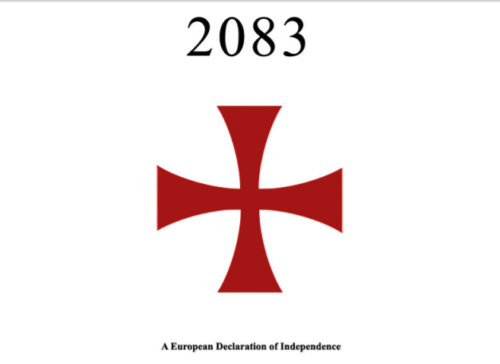
This reading carries on from here.
The first part of the document proper is devoted to the “falsified history” of the West and “other Marxist propaganda”. It begins with a review of the history of Islam, in which Islam is declared responsible for the murder of over 300,000,000 non-Muslims throughout history.
It also lists, at length, the historical crimes of Islam. This exhaustive list of genocides, coupled with lines like “more than 95% of today’s Journalists, editors, publishers are pro-Eurabians” makes it easy to get the impression that Breivik has a particularly paranoid Weltanschauung.
He catalogues in detail the strategies that he considers the Islamic “theofascists” and Marxists to be using to manipulate the popular opinion of the religion in the West. Most of these strategies boil down to either lying or intimidation.
Curiously, despite that he describes himself as a Christian, he nonetheless is able to correctly point out that the vast historical crimes of Christianity are mostly inspired by religious features that are shared by all the Abrahamisms.
Without irony, Breivik describes a supposed rule of the Islamic theofascist propagandists: “If people ignore or refute your distorted version of history, accuse them of distortion and political abuse of history.”
It is taken for granted that his own understanding of history is complete and accurate.
Breivik doesn’t seem to have much time for the idea that there could be many different reasons to believe in different accounts of history. The history of Islam is one of evil, and any attempt to paint a more positive picture can only be part of a campaign of deliberate misinformation.
A noticeable pattern is that Breivik is very selective in what he cites as evidence. At one point he cites a Danish literature student who “concludes that Islamic texts encourage terror and fighting to a far greater degree than the original texts of other religions.”
There is nothing objectionable about this in isolation, but in the context of a determined attack on the legitimacy of the university system – with the attack itself centering on the degenerative effect that subjective textual analysis has had on the truth – it seems a bit contradictory.
However, the criticisms made of the content of the Koran and the Hadith cannot simply be dismissed. The plain facts are that the document calls for the killing and/or subjugation of non-believers at dozens of different points.
In fact, Breivik’s criticism of Islam raises some questions that, although deeply uncomfortable, are also unavoidable if one wishes to honestly evaluate the likely outcomes of Muslim culture expanding into the West.
If Muhammad was the perfect man who all Muslims should emulate, what do we make of the hadith that describes him as consummating his marriage to a nine-year old? Likewise, what do we make of his admonitions to kill adulterers and apostates? Or his decree to have a poet killed for mocking Islam?
“The entire Islamic moral universe devolves solely from the life and teachings of Muhammad,” Breivik contends.
So what do we do about the fact that some of these actions, believed by Muslims to have been undertaken by the perfect man in total accordance with the Will of God, are grossly incompatible with what Western culture considers to be good order?
Surrounding these very pertinent questions are long, paranoid expositions about the supposed Islamic sanctioning of lying and deceit, especially when speaking to unbelievers. Breivik certainly appears to believe that lying to non-believers is an inherent part of the Islamic religion and culture.
In some ways, the general criticisms of the unwillingness of Muslims to peacefully coexist sound entirely plausible, because we know of the history of the previous waves of Abrahamism to Europe. Christians also came to Europe professing a desire to live in peace, and they nevertheless found plenty of scriptural support for their efforts to terrorise the locals for centuries.
In other ways, things are less clear. It’s obvious that the other Abrahamisms – in particular Judaism and Christianity – are no longer as mindlessly bound in ancient tradition as they once were, but is this true of Islam? And if so, to what extent?
Breivik would evidently answer in the negative. He would have it that Islam has not changed at all since those early days of caravan raiding, and that even if it has, it’s liable to regress back into violence on account of the precedent set by Muhammad himself.
It’s certainly a very dark and dire perspective – but is it wrong?
*
The VJMP Reads column will continue with Part III of Anders Breivik’s manifesto.
